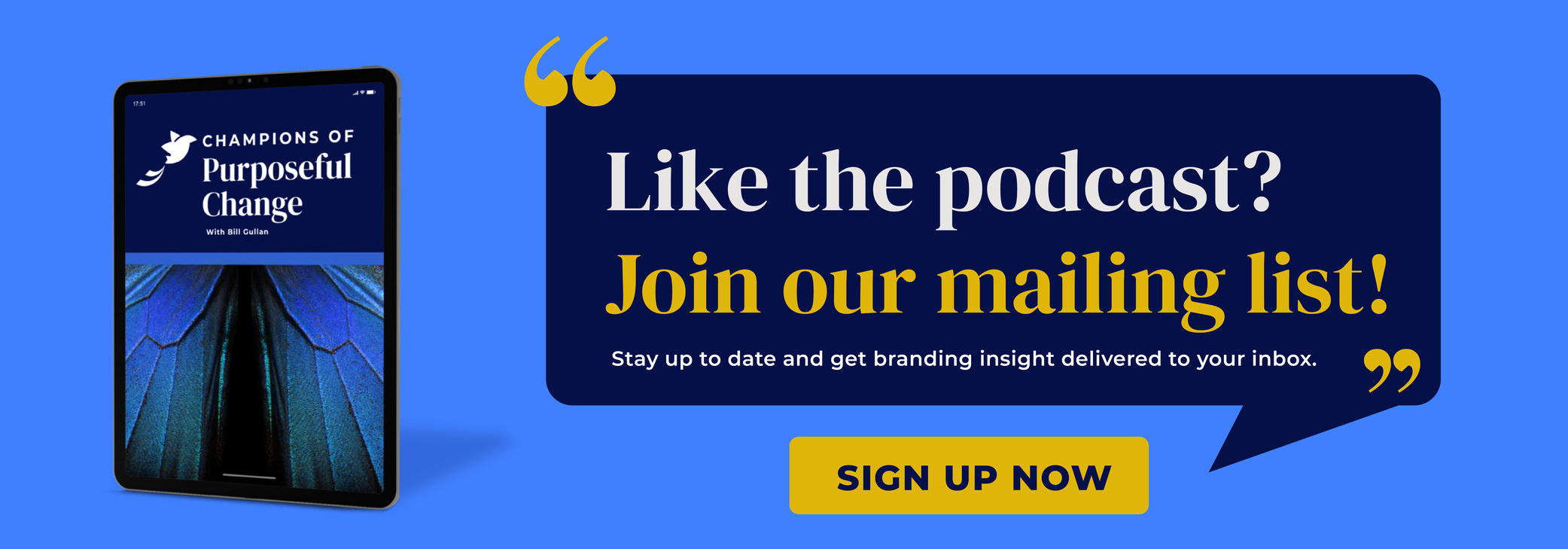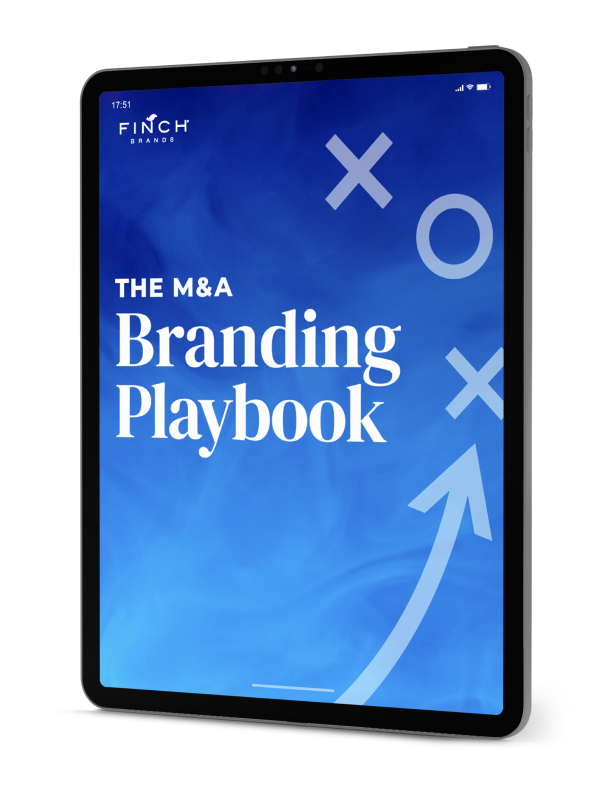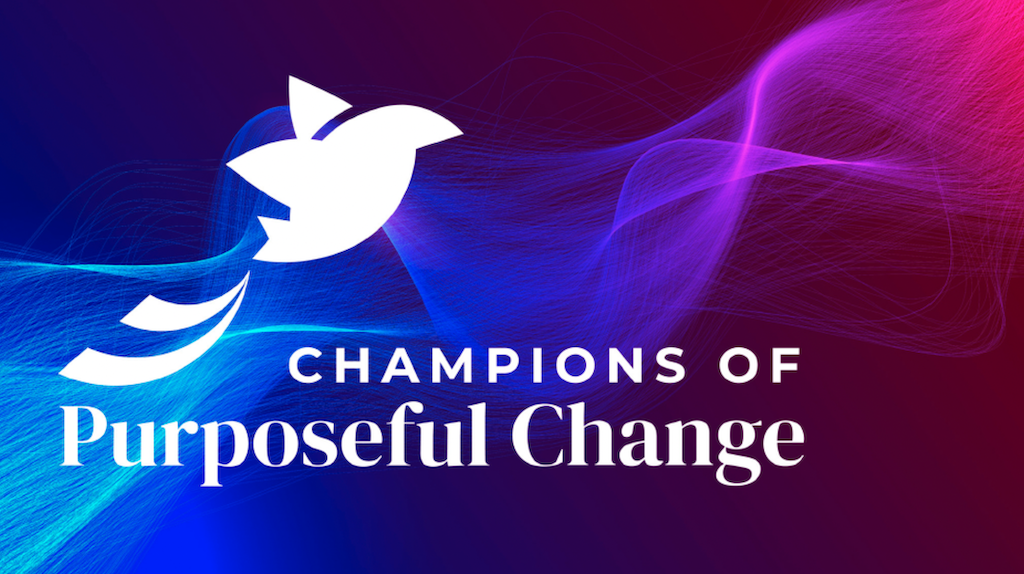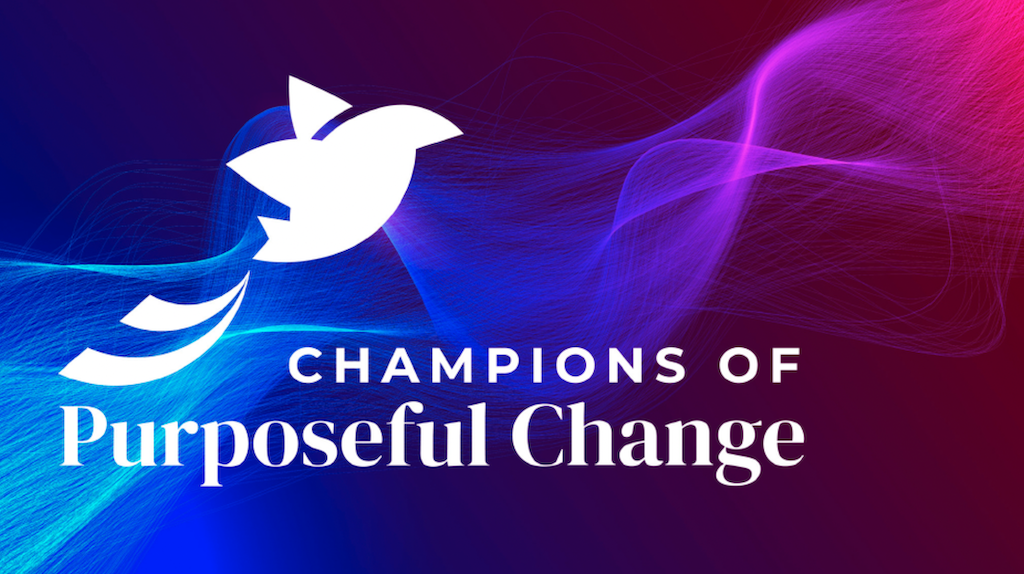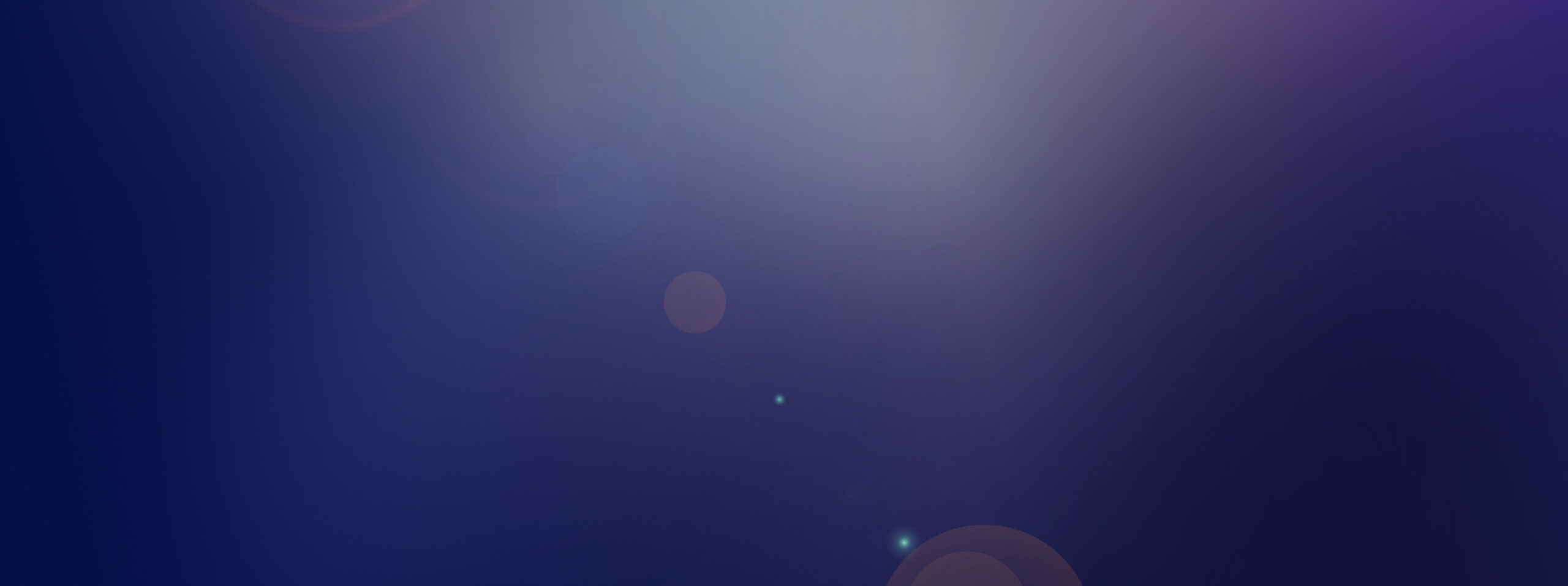On the Front Lines – Peter Hotz – President & CEO of vybe urgent care
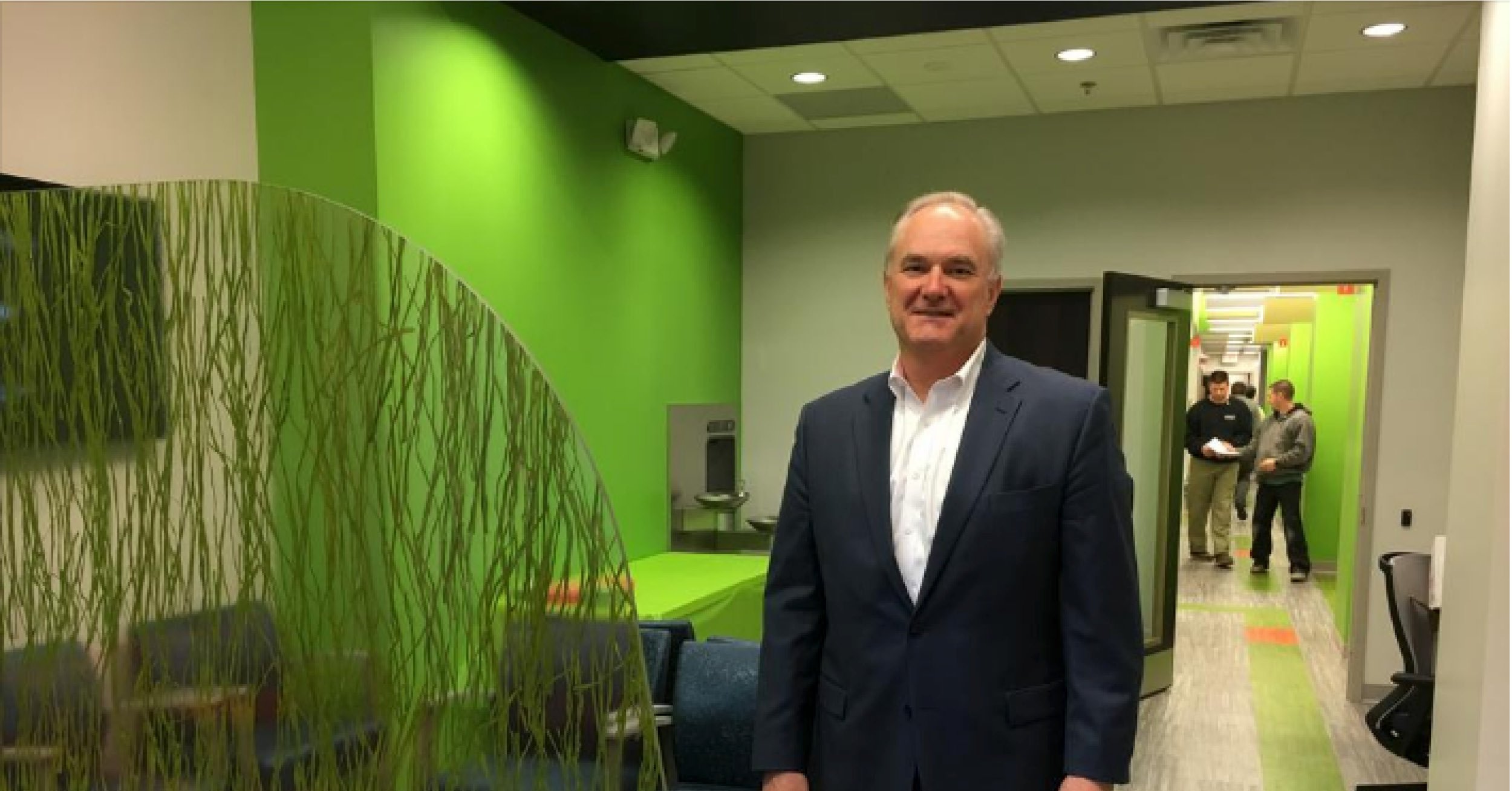
Today, we’re joined by Peter Hotz, President & CEO of vybe urgent care. Peter is a seasoned entrepreneur, business leader, investor, and mentor who thrives on helping emerging healthcare businesses achieve their potential. We discuss his career, the amazing brand and business he’s building at vybe, and what it’s like to successfully run an urgent care in this difficult time. If you like our podcast, please subscribe!
Podcast: Download Subscribe: iTunes | RSS
Transcription:
Bill:
Greetings one and all. This is Real-World Branding. I’m Bill Gullan, President of Finch Brands, a premier boutique brand consultancy. Thank you for joining us. With all the interviews that we’ve been doing during this really uncertain period of time, I’ve been giving you kind of a timestamp. And this interview with Peter Hotz who’s the founder and CEO of vybe urgent care was conducted on Monday afternoon between 2:00 and 3:00 PM Eastern and time moves fast. So by the time this launches, the whole world may have changed, hopefully gotten better if it changes at all. But Peter is an amazing healthcare executive who’s built an incredible brand. vybe urgent care has 11 locations in metro Philadelphia. It’s predicated on access and on patient experience as Peter will relay. In this particular inning with so much uncertainty, vybe is playing a real leading role in helping triage within the Philadelphia area. Those who have both symptoms that might be related to Covid-19 or just the typical realm of that for which one goes to an urgent care. So incredibly busy and challenging time and so grateful that Peter and his team are on the front lines of this. So enjoy hearing from Peter Hotz.
Bill:
Joining us is Peter Hotz, the founder and CEO of vybe urgent care. Thanks for your time, Peter.
Peter:
Hey Bill. Happy to be here.
Bill:
And we’re really glad to have you always, but particularly in a moment that is challenging and where the healthcare system is really putting a foot forward. So before we get to vybe and kind of what you’re building and how that’s expressing itself today, let’s talk a little bit about your backstory and an incredible career in consulting and finance and healthcare tech and and care. So talk a little bit about your journey, if you wouldn’t mind.
Peter:
Sure Bill. I really feel fortunate. I got into healthcare right out of college and it’s a great career in that even though I can barely put a Band-Aid on, I get to enable healers to do what they do. And to be able to look at physicians and clinicians and nurses and x-ray techs and all the wonderful types of clinical people I’ve been able to work with in my career, what they do is really impressive. And at the same time, healthcare is an industry that really needs business leadership. And so to be able to work in that field has been really gratifying for me.
Bill:
I can imagine. And did you set out, I mean you were an economics major and undergrad and followed a consulting route, I think PWC at one point along the way. How did your passion for the business of healthcare sort of take root in you as you’ve gone from stop to stop?
Peter:
Yeah, really you’re right. I kind of started as a consultant and was really more concerned with numbers and metrics and business plans and things like that. But yeah, it was probably, I’d say in my early thirties when I really went from working on more of the financial aspects of the business to being involved with organizations that were in the direct provision of care. And so in the 90s I was involved in several businesses that actually owned and operated physician and physical therapy practices. The more time I spent and the more I kind of shifted my focus from a finance focus to more of a, I’ll say marketing, business development strategy focus, and really then trying to solve the business challenges of healthcare became something that I became really passionate about because I just saw the work that clinicians did and thought, wow, we really need to make sure that we figure out how to make the business part of this work. And so went from being something, a field that I was in to really more of a passion.
Bill:
Yeah. Very cool. And so some of the stops that are interesting. You mentioned the sort of PT and some of the outpatient work that you were overseeing at least the business side of it. And there was also a couple of sort of work site and job site health and wellness services businesses that you were part of including one that was within the Walgreens umbrella. Could you talk a little bit about that sort of angle that you took and what made that compelling?
Peter:
Yeah, I really enjoyed that time and two aspects of that. One with the work site health business, we had about 400 clients and they were really the who’s who of American business. We had companies like Disney and BMW and Goldman Sachs and US Steel and Sysco and companies from all different industries. And they all looked at healthcare and looked at their workforce and said, “We care enough about our workforce to make sure that we’ve got access for them where they need it, when they need it. And we also want to manage the cost element of this.” But we had a seat at the conference table with all the senior executives from those types of companies. And we got to see how they thought about human capital. And we also got to see how they thought about their branding, for example. And with Disney, the fact that they wanted their cast members as they call them, to have a healthcare experience unlike any other, so that they would then translate that into the experience they provided for their guests. And so it really made us think about the delivery of healthcare, not just from a clinical standpoint but from a patient experience standpoint. So, that was a really fascinating part of that. About an eight year run, working in that work site medical business and leading that business, which was ultimately acquired by Walgreens.
Peter:
And then with Walgreens, I spent about a six year run at Walgreens and I was at the conference table again watching how a major iconic retailer was reacting to and trying to be proactive about the shift in healthcare as it became more of a retail business. And as consumers had more and more responsibility for their own healthcare and were accessing things like drug store clinics and trying to figure out how pharmacists can be more relevant in the delivery of healthcare. And really watching a company like Walgreens wrestle with should we or should we not sell cigarettes in the store if you want to be a healthcare company. And so really a fascinating time and a number of big, big strategic decisions that an enterprise that at that point had I think 250,000 employees and 7,500 stores was grappling with.
Bill:
Yeah, absolutely. And you’re right, an iconic name struggling with the present and the future. Super interesting. And so before we get into the specifics of what makes vybe so distinctive, what was it about urgent care? I mean, it seems a logical progression in some ways as you think about kind of the retailization of healthcare and the desire of consumers to have an experience with healthcare on their own terms. But what was it about the urgent care market? So vybe is almost at its fourth anniversary at this point. I think you have 11 locations. What was it that drew you to urgent care? And then we’ll talk about the process of building the vybe brand.
Peter:
Sure. Yeah. And actually it wasn’t necessarily a pull to urgent care. It was really more looking at Philadelphia as a market and looking at this market and saying, “We have some of the best healthcare in the world if you’re sick.” And we’ve got institutions like Penn, Jefferson, and CHOP and organizations like that. Yet at the same time as a city and as a market, we had some of the worst access to care for basic healthcare needs. And as we’ve talked that there are certain zip codes where you can be in one zip code versus another that might be a quarter mile apart. And your life expectancy might vary by 10 or 15 years just based upon the access to basic care that you have.
Peter:
And so really we set out to solve that problem. One of our founding cries was everyone deserves great care. And we thought, you know, how can we bring better care to more people? And I thought in order to do that, it needed to be an enterprise that could scale, that could attract both investor support and have the support of the health insurance plans, which as a provider, you always have to think about reimbursement. So we looked at a number of models and looked at things like federally qualified health centers, which do great work, but really felt like we had to be a for profit enterprise. And so urgent care was the most logical business model to start with because when you looked again at the way that consumers were accessing care, the models that had been recognized both by investors and by the health insurance plans, that was the most logical business model. So that’s why we started with that. And as you mentioned in early 2016 and what’s kind of led to our evolution.
Bill:
Right. And so a couple of elements of vybe. Vybe has a very distinctive platform in a couple of different ways from the name itself, which we’ll get to, to where you’ve chosen to locate, the message and mission of access for those who know this region comes through very palpably in where your locations are and the audiences that you primarily serve. But so you’ve decided what the right kind of focus and structure is of this platform. How does vibe come to life under your leadership?
Peter:
Yeah, we really looked at it and while we started with this, everyone deserves great care concept. And as you pointed out, we specifically said we’re not just going to cherry pick the affluent suburban neighborhoods. We’re going to put our centers in all parts of the city and the region.
Peter:
We also looked at urgent care as the intersection of retail and healthcare. And felt like that on the healthcare side, we had to provide great quality of care and do all of those things right. But on the retail side, we did want a brand that would stand apart. And so when we looked at urgent care, we really felt like it was, I describe it as the sea of sameness, that they all look and sound the same. And so everyone says that they’re accessible, affordable, high quality and fast. And so we felt like if we were going to build a differentiated brand, that we had to stand for something different. So we decided to anchor on the patient experience. And we felt like great care and great service did not have to be mutually exclusive. And that was kind of what was some of the founding thinking behind the company.
Bill:
Right. And so to get the kind of tactical elements, vybe, all lower case, very distinctive nomenclature next to the FastMeds and the MedExpresses of the world, which to your point are really about what we might call the species benefits of urgent care as opposed to the specific elements of your platform versus any other. The look and feel of the brand and of the clinics themselves definitely care seems to have been placed around making that feel different.
Peter:
Yeah, and I appreciate that. And that’s what was behind the brand. We actually said, “If we’re going to anchor on the patient experience, let’s map out the patient experience all the way from pre-contemplation when somebody is thinking do I need care or not? All the way through how do they access care, how do they receive the care and then the followup.” And so we we thought a lot about that patient experience and we originally said, “Let’s focus on the physical environment,” and kind of question ourselves and said, “How often do you walk into a medical or healthcare facility and actually feel energized and feel uplifted?” More often you’re walking into something that’s boring and gray and brown and drab.
Peter:
That led us to a positioning statement of feel better as soon as you walk in. And that feel better as soon as you walk in, let us divide that feeling you get when you walk into a room. That feeling that someone gives off. And that led us to the brand and it led us to think about our color scheme, which is as you know, orange and green and has a lot of energy to it. But the team knows and we’re very committed to this early on. It can’t be feel better as soon as you walk in and then feel lousy an hour and a half later because we made you wait, we screwed up the check-in, we weren’t empathetic, we didn’t give you good discharge instructions. So the vibe of our team is far more important than the physical facility. The facility kind of sets the stage for it, but the people that we hire and the way that they interact with our patients is really what makes the difference in the long run.
Bill:
Absolutely. And so as noted, 11 neighborhood-based clinics across the Philadelphia area at this point and counting. I’m sure more on the drawing board. And one of the big pieces of very recent news, it sounds like coming out of vybe is the availability of video visits. Could you talk about sort of what’s led up to that? What that means for patient and provider alike?
Peter:
Oh, absolutely. Yeah, and this is something that we were analyzing and assessing and we had plans to launch in the back half of this year. It was mostly likely going to be a September, October activity. With the Covid-19 outbreak, I give both Medicare and the health insurance plans a lot of credit. They have moved very, very quickly to remove any barriers to patients being able to receive care virtually, including loosening of regulations in a very safe way, but loosening of regulations, clarity around reimbursement. And so sometimes necessity breeds invention and at a time when people are being asked appropriately to stay in their homes, people still have healthcare needs. And so we moved quickly to launch a virtual care platform so that our clinicians, both physicians, our PAs and NPs can see people while they’re in their home. And so we launched this, we went live last week and it already, as of today or as of yesterday I think it was, we saw more visits virtually than we did in any one of our centers. It was the busiest center, if you will.
Peter:
And we’re really seeing two categories of patients here. One is people who suspect or have Covid related symptoms and want to have an evaluation in term of whether or not they need to come in for testing. The other category is people that have, I’ll say everyday or other healthcare needs that want to speak with a clinician but don’t want to be leaving their house. And so it’s actually scaled very, very quickly and we’re kind of just in the early days of that ramping up.
Bill:
Right. Very cool. Shifting now to the moment we are, just given how fast the world is moving right now and the news is moving, we’re recording this on Monday, early afternoon. It’s 2:33 PM Eastern time, Monday afternoon. So by the time this goes live in a day or so, the whole world may have changed. But at this point when you think about urgent care and you think about vybe and sort of the role that you’re playing in the overall arsenal of how to treat folks, I mean there’s been a lot of dimensions obviously to your point, folks who may have symptoms and the lack of ability of testing was an issue early on, probably still is. What do you see as your role within the overall healthcare industry response to Covid-19 and what are y’all doing day in and day out at this point?
Peter:
Yeah, it’s been a multifaceted and candidly the most challenging two weeks of my career.
Bill:
Sure.
Peter:
And we describe it as kind of a faucet that was slowly turned on and started to drip. But the drip was far away and in places we didn’t know. And all of a sudden the drip is getting louder and louder and louder and the faucets being turned up and none of us, what we don’t know is how fast it’s going to get turned up and how hard it’s going to get turned on. And that’s the thing that we’re all trying to anticipate. And I think that the steps that we’re taking as a society to distance are critically important. It’s all about making sure that we spread the demand on the healthcare system.
Peter:
So within that we’ve always viewed urgent care sitting in between a doctor’s office and the emergency room, meaning we can do about 80% of what’s done in an emergency room and we could do a lot more than what’s done in the typical doctor’s office. We also, like everybody in the healthcare field right now, our first concern was for the safety of our team and the safety of our patients. And so we have been very, very focused on personal protective equipment, on making sure that we have enough masks and shields and gloves and gowns so that our team can be protected. Because if they’re not safe, if they’re not healthy and safe then we’re not here to provide care. We also had to put in place protocols so that we could assure our patients that they would be safe coming into our centers or safe as possible in this environment. So that’s been a major focus of our effort.
Peter:
We’ve instituted well in advance of a lot of others it seems like daily wellness checks with our teams. So we were taking their temperature and ensuring that they were healthy every day when they showed up for work. The last thing we wanted was any of our team members to not be feeling well. We’ve had a number of team members that we’ve had to test because of exposure and are managing that aggressively as well. So that’s been a major, major focus in the team. At the same time, we’ve seen a significant decline in visits as a lot of people have stayed home and again, appropriately so, and are not seeking care for things that they might otherwise. So like a lot of businesses we’re looking at how do we preserve our cash? How do we trim discretionary expenses? How do we make sure that we’re focused on those essential activities? But also are managing our financial position so that we come out of this on the other end still fighting.
Bill:
Yeah. What a fascinating, I mean we’ve had a couple of guests, Peter, in the last week who were not health care businesses but are having various dimensions. One is a retailer, another is sort of a financial services organization. And I mean, the tech talk for their decision making is when do we close our stores or when do we move to more of a remote sort of form of team collaboration. But I mean you all are part of the vanguard of this response. And it sounds like the responsibility of while maintaining a healthy workforce, helping triage for this, this is indispensable to the overall response that the nation world is helping to bring to bear that we hope will all bear fruit is life begins again at some point here soon.
Peter:
Well that’s really what’s important here. Right? And I think as of yesterday we had done about 10% of all of the testing that had been conducted in Philadelphia. So about 10% of the tests in the city had gone through one of our centers. We decided early on, there were other urgent care providers and other physician offices who decided that they were not equipped either protective equipment wise or staff wise or supplies or what have you to be doing testing. We felt like it was critically important for us to be part of that and we’ve continued to do that.
Peter:
In terms of, you know, I mentioned that analogy of the faucet, what we’re anticipating, and most of the studies that I’ve seen so far from the major health systems are saying that the peak here is going to be an early to mid May. And so we’re looking towards that and saying, “Okay, when that peak hits, there’s going to be a lot of people that will need, I’ll say, lower level emergency type care that are not going to be able to get into a hospital. They’re going to need access to our centers.” And so how do we take, you know, if I call six weeks the long view, how do we take the long view and make sure that we’re open and functioning and enabled to be there then when we’re going to be really critically needed.
Bill:
Yeah, absolutely. I mean, so many dimensions to this and so many unknowns. But as I think we’ve certainly seen there are consequences of not preparing for the worst and getting ahead of things. So obviously there is hopefully a steady state on the other side when vybe remains an important element of one’s healthier and safer communities. But obviously you’ve been called to rise to an occasion here that none of us maybe could have foreseen and have challenged every assumption that we were at. What a time?
Peter:
Yeah. And it’s really amazing and I know there’s been a lot in the last week or so of praise for our frontline caregivers. And I can’t do enough to echo and reinforce that. And we’ve got, as I mentioned, physicians and physician’s assistants and nurse practitioners and x-ray techs and medical assistants and they’re showing up for work every day and they are putting on their shields and masks. And they’re screening patients and they’re treating patients and like our first responders, they deserve just a ton of credit and a ton of praise. It’s really an honor just to be able to support them.
Bill:
Yeah, it’s amazing. So Covid or no Covid, you know, vybe is in 11 locations. Video testing has been fast tracked. I know there’s probably things you’re working on that are top secret at this point, but what can you tell us to watch for in the future from vybe? Is it more growth? Is it additional services? I know everything’s sort of stopping right now to your point, but what’s next?
Peter:
Yeah, it’s both really. The two things you called out. We do intend to add more centers. We have several that are on the drawing board. Construction in a lot of places has been halted. It’s great to see that they’re continuing within the health system side to build, but our constructions are halted. So we do expect in the second half of this year to be opening some more sites. That exact number TBD at this point. And then we are looking at expanded services and looking at, virtual is something I mentioned that we plan to launch in the second half of the year. We stood a solution up pretty quickly that we’ll need to evolve. And we’re also looking at how we can partner more with the health plans and with other providers to look at other ways that our centers can add value to keep people out of the hospital that don’t need to be there, to provide follow up care for people that don’t have primary care physicians. So yeah, there’s a lot of need in healthcare and a lot of need for all of us to be economically intelligent about it. So that’s why I think our centers fill a valuable role.
Bill:
Certainly. And also tremendous opportunity for those in the healthcare space who can blend as you have throughout your career and certainly with vybe, that sort of retail customer experience focused side of this along with quality and clinical excellence. For those who’ve been inspired, Peter, by your career path or what you’ve built at vybe or just this entire conversation, any sort of words of wisdom from your journey that you might want to share with someone who might be either starting out or starting over?
Peter:
Yeah, happy to. I mean one of the things I talk about a lot is the importance of social capital. I think people early on in their career may not realize the importance of that, but I think building, cultivating and managing and curating a network of people that you can be helpful to that will then want to help you when you need help is critically important. None of us can do this by ourselves, whatever it is that we’re doing. And so just even in this time, being able to tap on friends that may or may not even work in the same industry. I have a buddy that runs a chemical company and I was able to call him and he donated a bunch of masks to us.
Bill:
Nice.
Peter:
And to have access to people in the health systems and the health plans to really get a read on what’s going on. That importance of a social network. You know, a lot of us think about it personally, but it is just as important professionally. And so that’s a bit of advice I would give is think about managing that social network just as you think about managing yourself and anything else that you want.
Bill:
Not just Tik Tok dance moves or whatever that I would –
Peter:
Well those are important for your friends and family perhaps. Yeah. Listen, it’s just finding ways to be helpful to people and knowing that if you focus on that, you’re always going to have help when you need it.
Bill:
Yeah, no doubt. And that’s a great place to leave it given all the help that vybe and that you, Peter, and your team are providing as we all together, though in some ways alone are facing what’s on our plate. Peter Hotz, the founder and CEO of vybe urgent care. Thank you so much for your time.
Peter:
Bill, my pleasure. Have a great day.
Bill:
Many thanks to Peter. It’s certainly a busy and really high stakes moment in our healthcare system, in our region and well beyond. And we’re really grateful for a little bit of his time and all the insight that comes along with what he’s built and is building at vybe is very distinctive. We’ve had, as noted, several opportunities to work in and around urgent care both on the clinic and sort of chain side as well as within the tech that underlies urgent care practices. And vybe really is a pioneer and a brand level of focusing not just on attributes of urgent care, the fact that it’s on demand or that goes quickly or that it has later operating hours. But focusing also on a really sort of deep connection with patients and how they’re treated. So we’re really grateful for all that Peter is doing both in spending time with us and all that vybe is doing to help keep our communities safe and make them safer.
Bill:
So three ways to help us here at Real World Branding. I hope for those who are socially distancing and maybe it’s giving you hopefully a little bit of time to catch up on some things you might like to listen to or to think a little bit about what life professionally and personally might be coming out the other side of this. If you enjoy what we’re doing, there are three ways to help us and support us. One is to give us a rating and a review within the podcast app of your choice. That helps us get found.
Bill:
Another way to do it is to subscribe. We’ve been going every week for the past three given how yeah, A, we have some time, or at least we’re all home. We’re not driving from meeting to meeting or flying from city to city. And so while things are busy, we do have some time and others do too as well as just the fascinating set of questions that our clients and colleagues and friends are dealing with in the wake of this really unpredictable moment in our country.
Bill:
And so we’ve recorded three in a row weekly. I’m not sure that that pace will continue, but if you click subscribe, you’ll make sure you do not miss a single one when the next one comes. And then the third way to help us is to keep the dialogue going. We love ideas for guests. We love ideas, strategic topics. We love feedback on what we’re doing because ultimately our goal in addition to the joy of bringing you these stories is for it to be valuable and entertaining. So appreciate your feedback to make sure that it is. We’ll sign off from the cradle of liberty.
